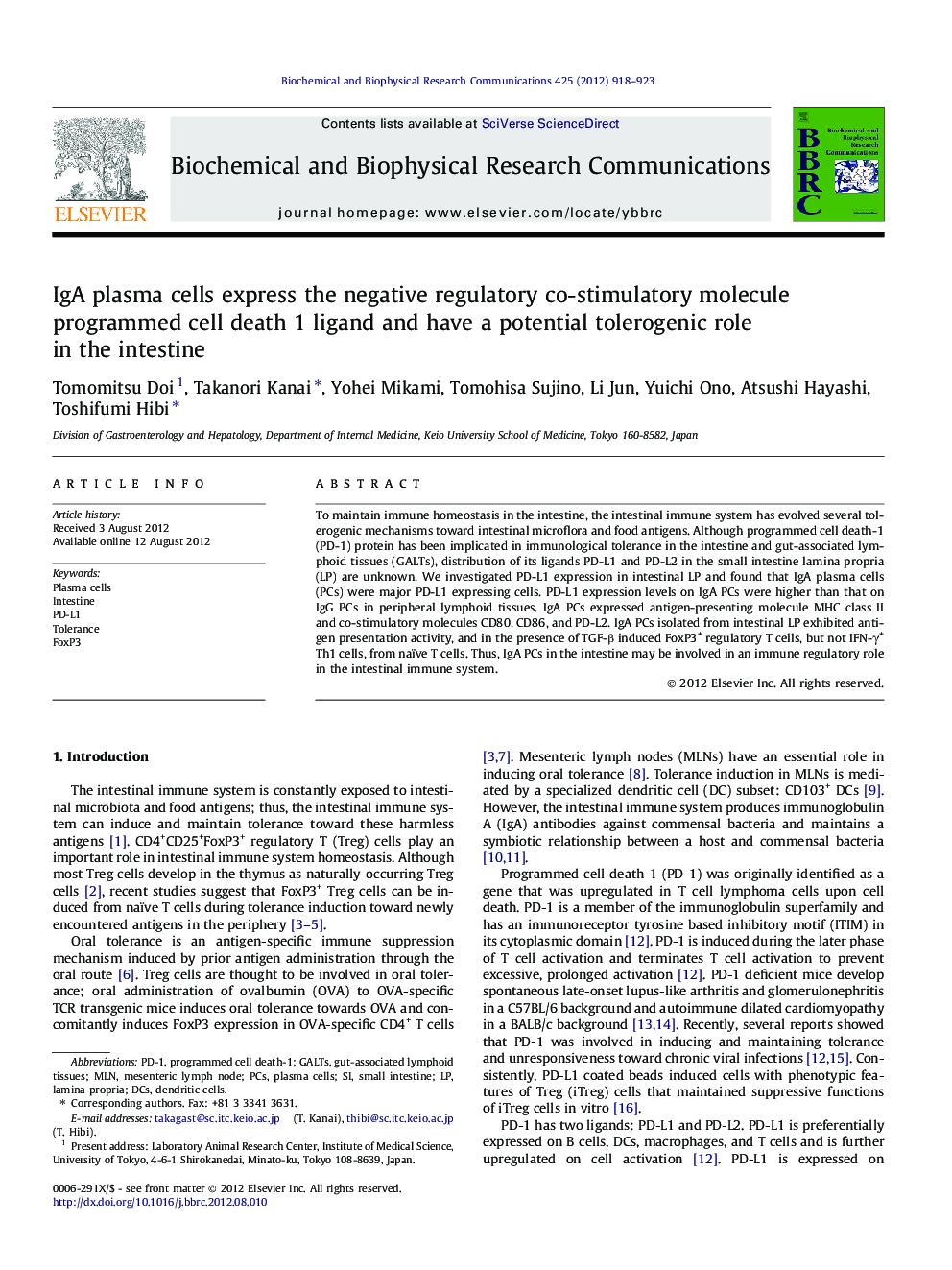| Article ID | Journal | Published Year | Pages | File Type |
|---|---|---|---|---|
| 1929630 | Biochemical and Biophysical Research Communications | 2012 | 6 Pages |
To maintain immune homeostasis in the intestine, the intestinal immune system has evolved several tolerogenic mechanisms toward intestinal microflora and food antigens. Although programmed cell death-1 (PD-1) protein has been implicated in immunological tolerance in the intestine and gut-associated lymphoid tissues (GALTs), distribution of its ligands PD-L1 and PD-L2 in the small intestine lamina propria (LP) are unknown. We investigated PD-L1 expression in intestinal LP and found that IgA plasma cells (PCs) were major PD-L1 expressing cells. PD-L1 expression levels on IgA PCs were higher than that on IgG PCs in peripheral lymphoid tissues. IgA PCs expressed antigen-presenting molecule MHC class II and co-stimulatory molecules CD80, CD86, and PD-L2. IgA PCs isolated from intestinal LP exhibited antigen presentation activity, and in the presence of TGF-β induced FoxP3+ regulatory T cells, but not IFN-γ+ Th1 cells, from naïve T cells. Thus, IgA PCs in the intestine may be involved in an immune regulatory role in the intestinal immune system.
► IgA PCs are major PD-L1+ cells in the intestine. ► IgA PCs are potent inducer of CD4+ FoxP3+ Treg cells in the intestine. ► PD-L1 expression on IgA PCs is higher than that on peripheral IgG1 PCs.
